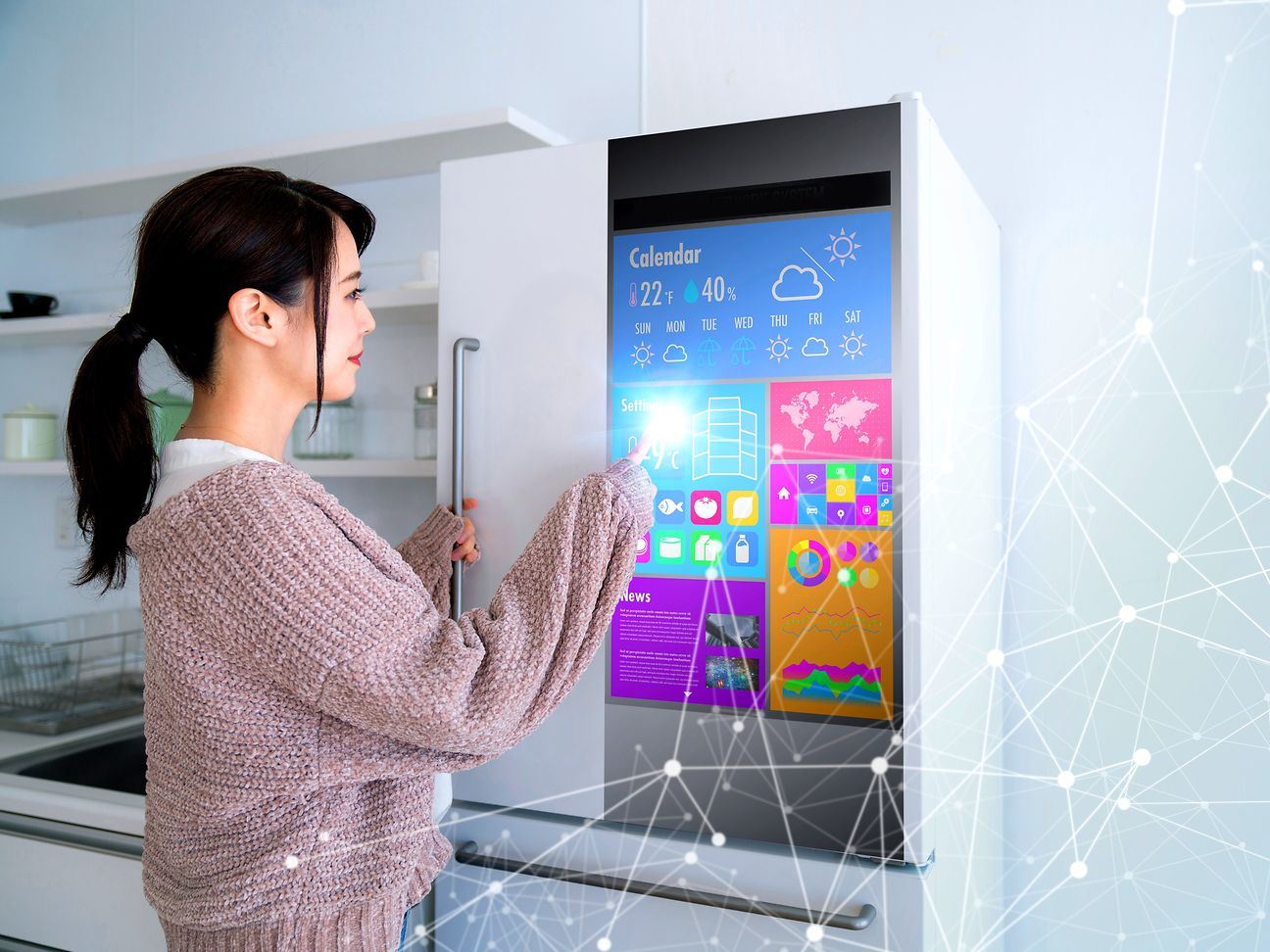

"Technology becomes invisible, but is always there"
One researches consumer trends. The other has trends for Deutsche Telekom on his radar. In an interview, both look to the future: Professor Peter Wippermann, Trendbüro Hamburg, and Andreas Schlegel from the strategy department of Deutsche Telekom.
Today it is about our everyday life in, say, five years. What kind of innovations can we expect? But first: How do you explain this vague term?
Professor Peter Wippermann: For me, acceptance in everyday life is crucial. Take the smartphone. It has caught on very rapidly, so that 75 percent of all ten-year-olds in Germany now have one. Sure, that makes you frown. Nobody pushed or ordered it; rather, it shows the socio-cultural impact of technology and how it satisfies needs.
Andreas Schlegel: I see a similar picture. Successful innovation is what crystallizes out of a crowd and then becomes part of many people's everyday lives.
We are currently experiencing that innovations integrate themselves into everyday life more quickly, aren't they?
Wippermann: Exactly. The acceptance of new technologies has increased as rapidly with Covid-19 as it would have normally done in five years. This is shown in a study by IBM. It is becoming more and more likely that virtual reality, i.e. immersion via glasses into realistic worlds, will also have arrived in households and companies in five years. Take Facebook. The company wants to enable meetings in virtual rooms with image qualities we are used to from television. We are currently seeing it with video telephony. This has been around in the private sector for quite some time. But all of a sudden the topic got a boost. Professionally in the home office as well as in leisure time to stay in touch with family and friends. People are more likely to accept the new technologies.
Schlegel: In fact, we learned in the "New Normal" how much all this helps us. For example, we can join video meetings with colleagues and friends from anywhere, thus avoiding the risk of infection and not having to wear masks. And at the same time the applications mature technically much faster.
Wippermann: The changes are enormous. In the USA, for example, a large part of the population - much more than in Germany - is now prepared to discuss health problems via video services. In China, self-propelled delivery vehicles are gaining ground. They are not new, but they bring supermarket goods to people without any contact. Touchless technology", i.e. contactless applications, is currently developing as a huge topic. Be it for payment, building access or identification at the airport - more and more biometric procedures are coming into play. For example, authentication via palm lines, for which consumers simply hold their hand in front of a scanner. And facial recognition, which should be sidelined before the pandemic hits. Voice input is now also becoming more popular. It is an incredible boost that the pandemic is giving here.
Schlegel: This goes so far that people are having microchips planted under their skin, for example to open front doors or unlock their smartphones, or to make health data accessible in the event of an accident.
Wippermann: One thing is certain: Our physical and biological presence alone gives us access to something or not. All this is exemplary of a development that is becoming increasingly clear: Technology becomes invisible, but is always there.
Keyword health: More and more people are wearing smart devices, so-called wearables, that measure heart rate, blood pressure or even oxygen saturation in the blood. These are all sensitive data. What is the next step?
Wippermann: 40 percent of younger people have already equipped themselves with these devices. Permanent monitoring of one's own physical and biological functions was unthinkable in the past. The company Google has a plan to network many sensors in the house in order to regularly tell the residents whether they are living a good life. Whether they sleep enough, whether they get enough exercise, whether they do not drink too much alcohol. Or whether they consume too much Twitch and YouTube videos. That sounds like surveillance. But given the success story of wearables, it's likely that in five years, this will also have become more natural for certain groups.
Schlegel: If the data is used in a targeted manner, that's a good thing. The interesting question is how a provider keeps the scales up for itself. In other words, whether its business model is in line with health interests. If, on the one hand, a digital provider wants to use networking to ensure that people live healthily, on the other hand he would have to accept that they would use other services of his - such as his video platform - less. But unfortunately, this is not an automatic process. We are also seeing that the whole life, or rather the data, is in the hands of a few large corporations. This is not good, so we welcome considerations that give users back control over their data and thus - assuming users agree - also give new providers and innovations a chance.
Wippermann: When it comes to data, it is exciting to look in the direction of mobility. In the USA, Waymo already has autonomous cars on the roads, and the same applies to China. In five years, this will also be relevant in our country, and in ten years, half of them will have become established on the mass market. The cars will pay for themselves when they fill up with energy. As rolling living rooms, they have entertainment on board. The emergence of the vehicles will have to be coordinated and is interesting for traffic planning. There will be many new opportunities to expand business models or implement new ones. This will generate an infinite amount of data. We see mobility as a development that gives completely new impulses, not only in how we design our journeys, but also in our lives.
Finally, a question about communication. How will it develop, for example, among friends? After all, virtual reality will enable us to visit museums together with friends at any time, just like underwater worlds or the pyramids. Where will the journey take us?
Schlegel: If you are looking for a clear destination, I must disappoint you. We had also long assumed that people would want to exchange information mainly in real time and with video, for example in virtual spaces. But on many topics and occasions, communication prefers to take place asynchronously, i.e. time-shifted via messages or voice recordings, via pre-produced contributions for various platforms - with huge feedback. So it's very different from a youth clique ten years ago. For us as network operators, it would of course be easier to adapt the technology to a specific communication application of the future, but it hasn't been like that for a long time
Wippermann: We are social beings and we need recognition. At the same time, our society is becoming increasingly differentiated and individualized. In the past, we used to get our feedback in social spaces, in classic conversation. This is now shifting to the virtual world. We are indeed observing a decoupling of feedback. Just the fact that people send each other voice mails instead of phoning shows that people want to control their contributions better and deal with the conversation situation less emotionally and spontaneously. Communication behavior is therefore undergoing a profound change. It will be more and more about conquering virtual spaces and likes.
Professor Wippermann, Mr. Schlegel, thank you for the interview.
Peter Wippermann …
… is one of the most renowned German trend researchers. From 1993 to 2016 he was professor of communication design at the Folkwang University of the Arts in Essen. In 1992 he founded the Hamburg Trendbüro as a "consulting firm for social change". In 2002 he launched the Lead Academy for Media Design (since 2002). The 71-year-old is also editor of the trend magazine "inspire" and "Jahr der Werbung" (Econ Verlag). Books and more: Werte-Index 2020, Wertewandel in Deutschland, and "Wie kauft Deutschland übermorgen ein?" (QVC Future Study 2016).
Andreas Schlegel …
… has been Vice President of Group Strategy at Deutsche Telekom AG since 2014. He evaluates trends in terms of their significance for the Group's strategic activities and publishes the Telekom Trendradar every year. In addition, the 45-year-old continuously drives forward strategic projects derived from this radar. From 2001 to 2014 he was with the strategy consultancy Bain & Company, and since 2010 he has been a partner in the Telecommunications, Media and Technology Practice Group.




